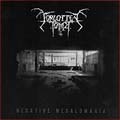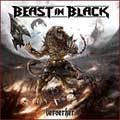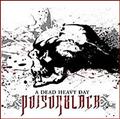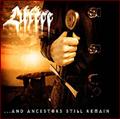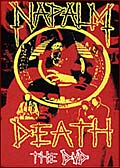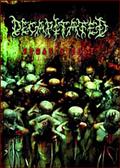ELVENPATH (de) - Gateways (2004)
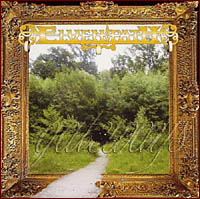
Label : Dark Music Production
Sortie du Scud : janvier 2004
Pays : Allemagne
Genre : Power Heavy Metal
Type : Démo
Playtime : 5 Titres - 41 Mins
ELVENPATH est un jeune groupe germanique qui a été bercé au son de riffs acérés des tontons Kai Hansen et Michaël Weikath durant la période Walls Of Jericho ainsi que celle des deux volets Keeper Of The Seven Keys. Et la logique de ces teutons est de reprendre le travail de leurs illustres prédécesseurs là où il s’est arrêté, c’est à dire vers la fin des années 80. Les quatre allemands aiment tellement ce Power Heavy qu’ils ont décidé de l’immortaliser sur CD pour leur plus grand plaisir (mais pas forcément le nôtre !) alors qu’en est-il de ce Gateways ?
Ma foi, pour ce qui est de la production, on peut dire que le quatuor s’en sort avec les honneurs. En même temps, il s’agit d’un disque venant d’outre-Rhin, le pays des grosses saucisses et des gros producteurs donc de ce point de vue, il n’y a pas de souci. Le son est bon et le mixage est plutôt sympa. Néanmoins, ELVENPATH est un jeune groupe et il a cumulé toutes les maladresses possibles et imaginables tout au long du disque. Intro à rallonge, riffs éculés, absence totale d’arrangement, répétitions interminables de la structure des morceaux et une pochette hideuse, certainement conçue à partir d’un ersatz de Photoshop.
Dès le premier morceau, « The Land That Could Not Be », le groupe pose les cartes sur table et affirme son désir de jouer du Power Heavy de la grande époque. D’ailleurs, le couplet de ce titre n’est pas sans rappeler « How Many Tears » d’HELLOWEEN et le chanteur – guitariste Michaël Petrick tente de se rapprocher du registre de Bruce Dickinson… sans succès. N’est pas Bruce qui veut - Bruce qui peut ! Pourtant, on sent qu’il y a l’envie et la motivation car même si les chansons donnent cette impression de déjà entendues, elles parviennent malgré tout à véhiculer une certaine énergie. Cependant il reste un gros travail d’arrangements à faire. 8 minutes de moyenne pour 5 morceaux basés sur l’armature intro – couplet – refrain – intro – couplet – refrain – intro – solos – couplet – refrain… faut pas pousser mémé dans les orties les gars ! Au moment d’enregistrer, ELVENPATH à dû penser que la durée excessive d’une chanson était probablement un gage de qualité. Il faut donc espérer qu’ils corrigeront leurs erreurs de jeunesse pour livrer un véritable album travaillé.
La route est longue et le milieu bien saturé d’une foultitude de groupes de ce genre. Et ce n’est sûrement pas avec ce type de CD qu’ils réussiront à faire parler (positivement) d’eux. Allez ! Au boulot !
Ajouté : Lundi 06 Avril 2009
Chroniqueur : Hunter X
Score :   
Lien en relation: Elvenpath Website
Hits: 11379
|




